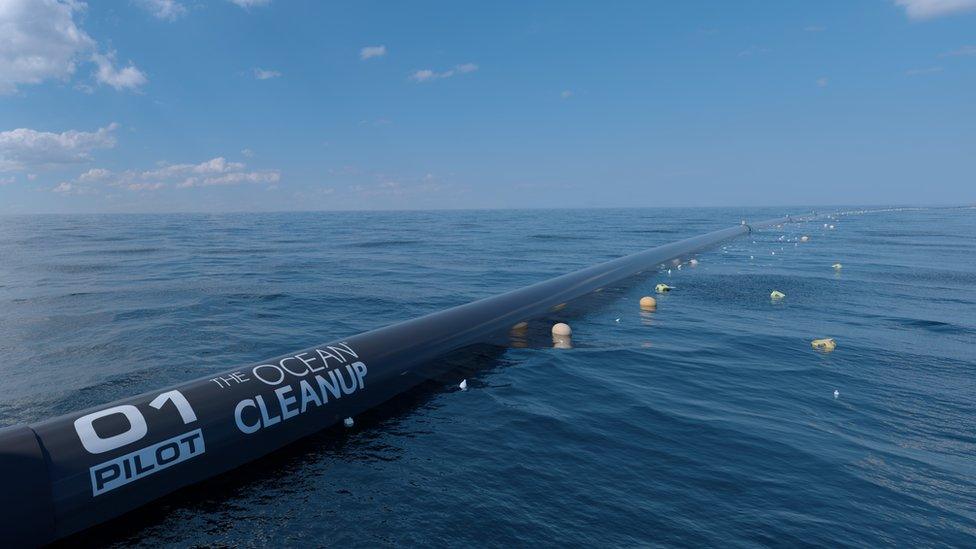World Oceans Day 2024: A guide to this year's themes and actions
- Published
- comments
WATCH: What problems are our oceans facing?
Today is World Oceans Day.
The theme for 2024 is Awaken New Depths, and the event's organisers say that this year will focus on changing our relationship with the seas to ensure the ocean's health and wellbeing.
An event will be hosted at the United Nations headquarters in New York on Friday 7 June, which will also be broadcast live.
Here is everything you need to know about World Oceans Day and the most important issues facing oceans around the globe today.
What is World Oceans Day?
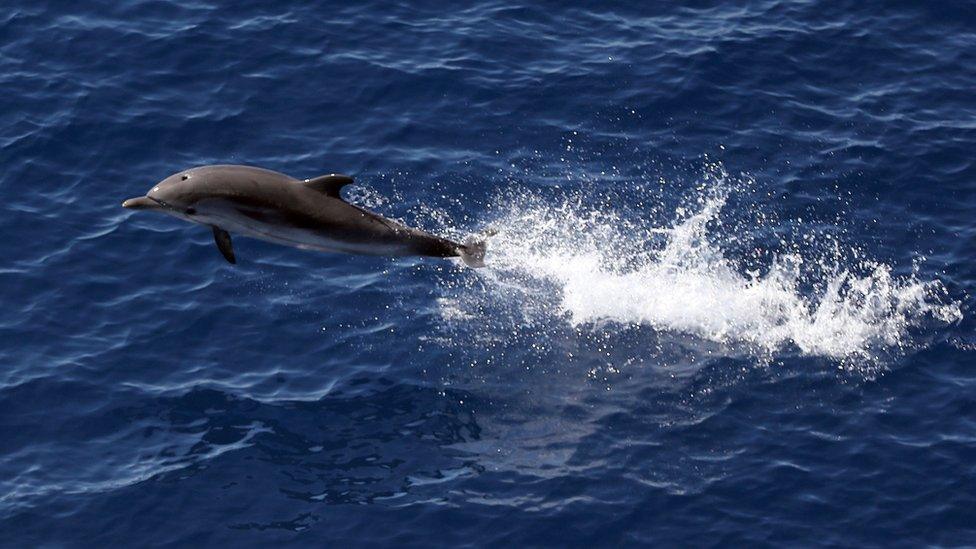
On 8 June every year since 1992, the United Nations has designated a special day marking the importance of the world's oceans.
They called it World Oceans Day.
Events marking it take place across the world and 144 countries take part.
In 2020, the event called for world leaders to commit to protecting 30% of our oceans by 2030 - in the hope that if that happens it will help combat climate change and protect marine biodiversity.
WATCH: Why do oceans matter?
Each year a different theme is adopted.
Last year, the theme was Planet Ocean: Tides Are Changing.
The UN held discussions on topics from the seas to space, and there was a special message delivered by Aquaman actor Jason Momoa.
The ocean produces at least 50% of the planet's oxygen.
An estimated 40 million people will work in ocean-based industries by 2030.
Oceans absorb about 30% of carbon dioxide produced by humans, helping to counteract some of the impacts of global warming.
Why are oceans under threat?
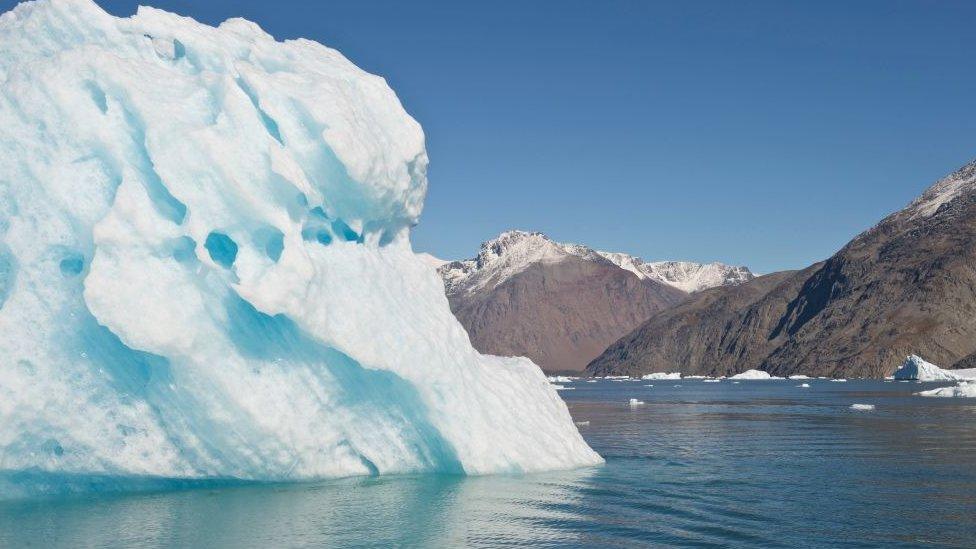
Oceans have reached record high temperatures which has caused many of the world's ice caps to melt
According to research released last year, oceans across the world have reached record high temperatures.
Seas are now warmer than at any other time in recorded human history and the increase in temperature has been directly linked to global warming.
Scientists believe that human activities - such as the burning of fossil fuels and emissions from factories - are having a bad effect on global temperatures, causing harmful gases to be released into the atmosphere.
If you can't see this quiz, click here
Those gases end up in the Earth's atmosphere and trap more of the Sun's heat, which then increases the Earth's temperatures.
Rising sea temperatures have a huge effect on sea life and many animals and plants are struggling to adapt.
Plastic pollution: How much plastic is in our oceans?
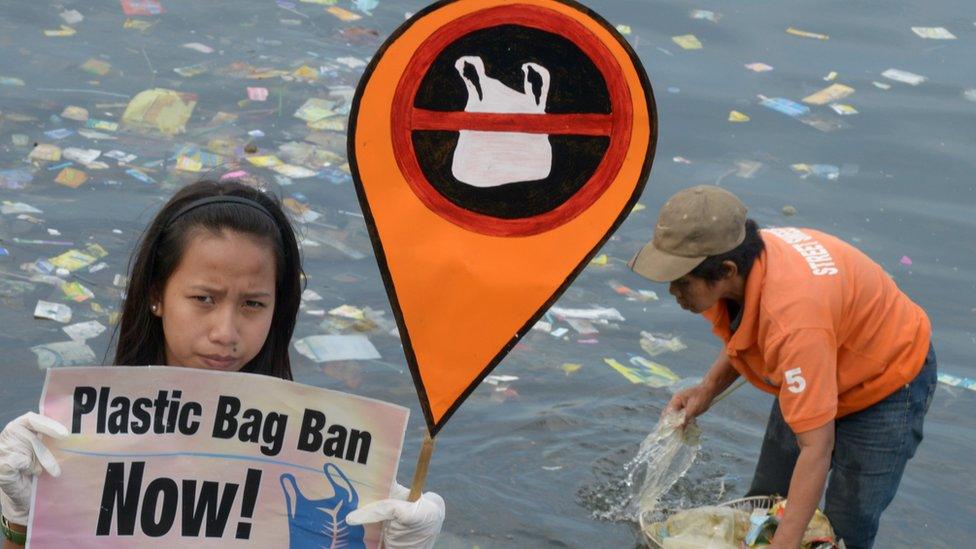
Plastic pollution has become a real problem across the world's oceans
There is also the big issue of plastic waste in oceans.
In 2019, the World Wide Fund for Nature - which is the world's largest wildlife and conversation charity - said plastic pollution was causing an environmental disaster.
More than 75 per cent of all plastic ever produced is already waste.
Plastic pollution kills wildlife, damages natural ecosystems, and contributes to climate change.
WATCH: Martin finds out why plastic is a problem (Pictures from Greenpeace, Caroline Power and Blue Planet II/BBC iPlayer)
The problem with plastic is that most of it is not biodegradable.
It doesn't rot, like paper or food, so instead it can hang around in the environment and take hundreds of years to break down.
More than eight million tonnes of plastic enters the world's oceans each year and most of that escapes from land.
It is thought more than five trillion pieces of plastic are currently in oceans around the world.
Ideas to celebrate World Oceans Day
Although World Oceans Day is an important day to learn more about the crisis state our oceans are in, it is also a day to celebrate oceans that take up 70% of our planet.
Here are some things you can do on the day:
You could make some marine themed art. If you fancy making a fish decoration to keep after World Oceans Day is over, check out how to make your very own moving fish..
As we know how much plastic ends up in our oceans, why not try to avoid using single-use plastics like carrier bags, straws and bottles and switch to reusable and refillable ones instead? Here are some more useful tips on how to cut down on the plastic in your life.
Why not try eating vegetarian food for a day? There are lots of delicious recipes that don't contain fish or seafood. You could even try this vegan recipe generator to come up with an idea for your next meal.
If you're lucky enough to live by a beach, why not take part in a beach clean-up event? This way you can do your bit by collecting rubbish that could make its way into the sea.
And finally, you can learn as much as you can about our oceans and how to protect them.
- Published5 March 2019
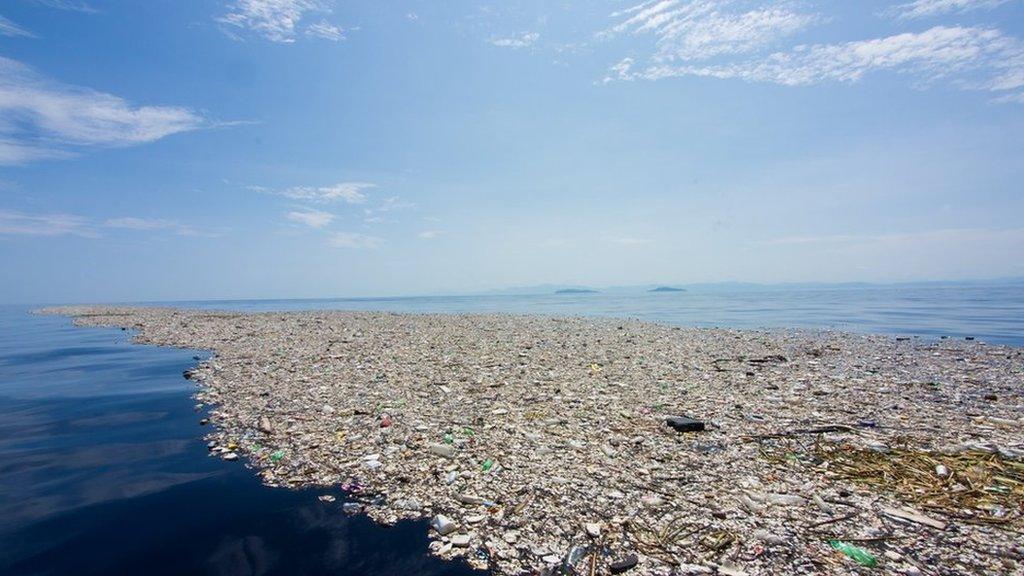
- Published8 June 2022

- Published15 May 2017
